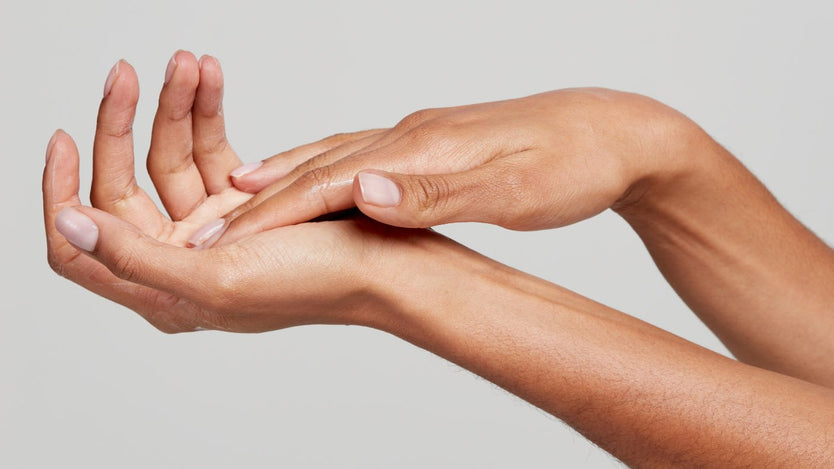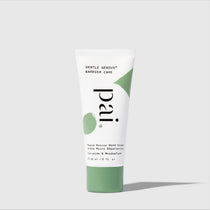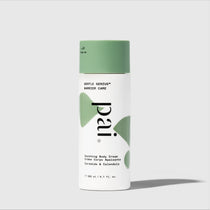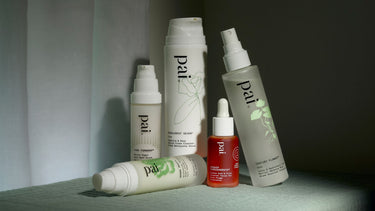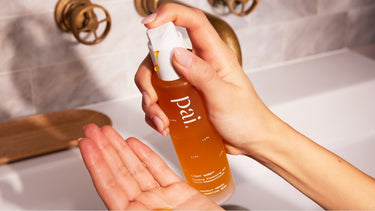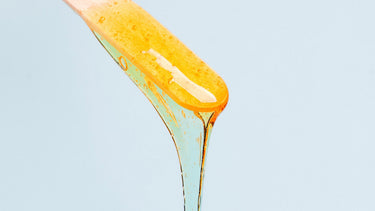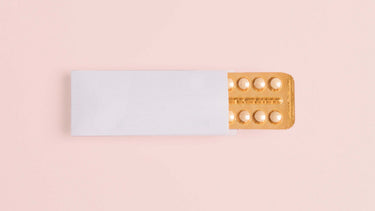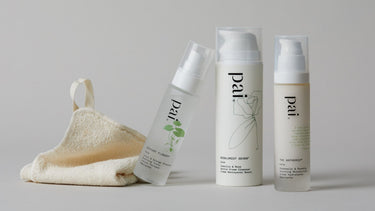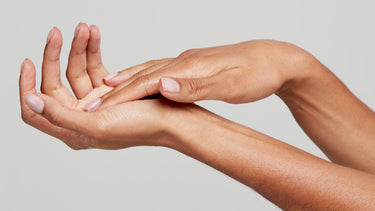Itchy, dry or cracked hands after washing is a common skin complaint if our social media messages are anything to go by. And with a pandemic thrown into the mix, it’s no surprise the problem has reached beyond those with more sensitive skin. But what happens to your skin when you wash your hands - and why are your hands so dry all the time?
Here we’ll share the common causes of dry, cracked hands as well as remedies for softly soothing them – and preventing the uncomfortable feeling coming back.
Causes of dry hands
Hand washing & Hand sanitiser
The advice when it comes to preventing the spread of viruses is crystal clear – keep washing those hands. Though necessary and absolutely the best thing to do, it can leave sensitive skin feeling just a bit irritated. Repeated washing – particularly with liquid soaps and high-in-alcohol hand sanitisers – can strip the hands of their natural oils, leaving them dry and rough.
Liquid soap usually contains chemical detergents which are notorious skin irritants. These foaming agents can aggravate the skin, leaving it inflamed and prone to cracking.
For many, this marks the start of a vicious cycle, as cracked skin can become even more vulnerable to further irritation. It is also likely to become even more sensitised to chemical ingredients in hand washes and hand creams.
Washing the dishes
In exactly the same way, doing the washing up can cause dry hands. Those same detergents are in your washing-up liquid to make it foam, which, while it’s great for efficiently cleansing your cups and plates, isn’t so good for your delicate skin barrier. That hot water won’t help either – it helps strip away those all-important natural oils, leaving your skin feeling dry and dehydrated.
Cleaning products
Being a dab hand at cleaning the house is good for keeping germs at bay, but without using gloves it won’t be so good for your hands. Scrubbing with harsh detergents and chemicals (which are designed to strip away dirt and grime) will only do the same to your skin - affecting the upper layers of your skin and disturbing your protective skin barrier.


Environmental factors
As with any skin issue, the environment plays its part. Dry skin is more likely in the colder months, when humidity is low, the weather is harsher and our central heating is cranked up.
And while we think nothing of carefully cleansing and nourishing the skin on our faces, we often leave our poor hands, quite literally, out in the cold and exposed to the elements. This extreme dryness can also cause fissures and cracking, which are slow to heal on dried out skin that is constantly moving.
So if you're only experiencing dry, cracked hands in winter, you're not alone!
Dry skin conditions
Dry, flaky and cracked hands can also be a sign of a skin condition, rather than a temporary issue. It could be down to eczema, psoriasis or dermatitis, or even an allergic reaction - speak to your GP or dermatologist to rule anything out.
How to prevent and soothe dry cracked hands
As with all skin afflictions, there may not be a simple single solution to extremely dry and cracked hands. Here are just a few suggested lifestyle changes to reduce the risk of irritation and help nurse your hands back to full health.

1. Avoid liquid soaps (and washing-up liquid)
The chemical detergents in most liquid soaps are drying and are known skin irritants.
Sodium Lauryl Sulphate, or SLS, is one of the worst and is incredibly common in shampoos and hand washes. The best washing up liquid for dry and sensitive hands is one without SLS, as well as free from fragrances, dyes and acids.
Always read the ingredients list on your products – good health food shops will stock SLS-free products or vegetable oil soaps that are kinder on the skin.
2. Avoid latex gloves
Many people who suffer from irritated hands turn to washing up gloves as protection from any chemicals or irritants they may come into contact with. The right washing up gloves can provide a much needed protective barrier, preventing any water or irritants from coming into contact with skin.
However, most washing up gloves are made from latex. The latex in these gloves can cause further irritation as a result of mild (or not so mild!) latex allergies.
To avoid added irritation from washing up, try vinyl washing up gloves instead. These are a good alternative to latex and tend to be easier to tolerate.
If you’re unsure as to whether you might have a latex allergy, here’s a little clue. Half of those who have a latex allergy also experience reactions when eating foods such as avocados, bananas and kiwis. Strange but true!
3. Avoid petroleum-based products
Many people’s first port of call when trying to treat damaged hands is petroleum-based moisturizers or emollients.
These work as a protective barrier to prevent water loss, but as a result, can suffocate the skin. Though they may appear to work in the short term, they can sometimes worsen dryness and sensitivity in the long term.
Once the triggers have been removed, it’s time to start healing and regenerating any damaged skin.
4. Increase your intake of Essential Fatty Acids

Essential Fatty Acids (Omega 3, 6 & 9) condition the skin from the inside out.
Oily fish, seeds and nuts are all good sources. But if your diet is lacking in these then hemp or flaxseed oil are examples of good oil supplements.
These are best taken in pure oil form off the spoon. Always store in the fridge to keep the oil in optimum condition.
5. Moisturise and massage
The best hand cream for really dry hands is one made with ingredients that won’t cause further irritation. Moisturise with a certified organic cream that doesn’t contain any of those chemical irritants that could have aggravated your hands in the first place.
Our Ceramide-powered hand cream is intensely hydrating, and its naturally-active ingredients soothe skin and support the skin barrier. Oats replenish lost lipids and nourishes rough skin, and the non-greasy formula sinks in fast as your hands lap it up.
For an extra intensive treatment for dry hands, try adding a couple of drops of natural plant oils to your hand cream or directly to your hands. Our bestselling Rosehip Bioregenerate Oil happens to be one of the very best! Its high concentration of Omegas 3, 6, 7 and 9 nourish the skin and accelerate the natural healing and regeneration process.
Our top tip? Apply your hand products generously at night and wear cotton gloves to allow the cream and oils to soak into your hands rather than your bedsheets.
Shop our hand and body products for dry skin now - or book a free skin consultation for more advice


























